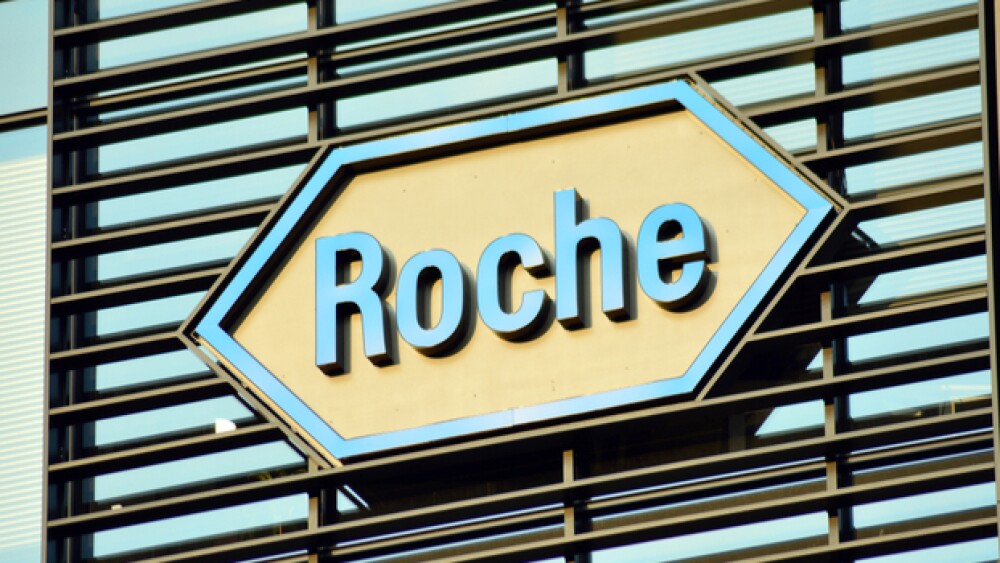Synlogic is partnering with Roche to develop Synlogic’s SYNB1891 with Roche’s checkpoint inhibitor Tecentriq (atezolizumab) in advanced solid tumors.
Grand Warszawski / Shutterstock
Cambridge, Mass.-based Synlogic is partnering with Roche to develop Synlogic’s SYNB1891 with Roche’s checkpoint inhibitor Tecentriq (atezolizumab) in advanced solid tumors.
Synlogic plans to file an Investigational New Drug (IND) with the U.S. Food and Drug Administration (FDA) in the second half of this year. SYNB1891 is a non-pathogenic strain of the bacterium E. coli that has been engineered to express a Stimulator of Interferon Genes (STING) agonist, which stimulates the innate immune system. When bacteria are enveloped by antigen-presenting cells within a tumor, the STING pathway is activated, which results in a type 1 interferon (IFN) response and the beginning of tumor-specific T-cell responses. In other words, it stimulates the immune system.
Also, the bacterial framework used in Synlogic’s Synthetic Biotic platform stimulates the innate immune system via other mechanisms, including Toll-like receptors. This may increase the magnitude of the overall immune response.
“This collaboration is an important step in advancing SYNB1891 as a potential treatment for difficult to treat cancers at it provides us with access to an important checkpoint inhibitor, atezolizumab, while allowing us to maintain ownership of our novel development candidate,” said Aoife Brennan, Synlogic’s president and chief executive officer. “We believe that SYNB1891 has potential to offer a new and meaningful approach in the fight against cancer when used in combination with checkpoint inhibitors, by potentially enhancing their potency and effectiveness.”
Synlogic expects to launch a Phase I clinical trial of SYNB1891 in advanced/metastatic solid tumors. That trial will evaluate the safety and tolerability of the drug to determine maximum tolerated doses for it as a monotherapy and the recommended Phase II dose in combination with Tecentriq.
At the company’s first-quarter financial report on May 9, Synlogic provided a pipeline update, including a presentation of its SYNB1618 for phenylketonuria (PKU), publication in Science Translational Medicine of first-in-human clinical data of SYNB1020 in cirrhosis and elevated blood ammonia, in-house manufacturing of SYNB1891, and lead optimization of investigational Synthetic Biotic medicines with AbbVie for inflammatory bowel disease.
The company also reported a consolidated net loss of $12.9 million for the quarter, with R&D expenses of $10.4 million. This was an increase from $8.4 million for the same period in 2018, primarily due to an increase in compensation-related expenses tied to increased headcount and increased manufacturing and preclinical and clinical studies. Revenue was $0.3 million for the quarter associated with its collaboration with AbbVie.
As of March 31, 2019, the company had cash, cash equivalents, and short-term investments of $109.8 million.
At the quarterly report, Brennan stated, “We made significant progress on our 2019 goals in the first quarter of the year providing a strong foundation for the continued development of our Synthetic Biotic platform and clinical pipeline.”
He added, “We strengthened our scientific leadership with the appointment of two experienced drug developers, Dr. Scott Plevy, as chief scientific officer, and Dr. Patricia Hurter, who joined our board of directors and brings additional relevant experience in manufacturing.”
Plevy was most recently vice president, Gastroenterology Disease Area Leader and IL-23 Pathway Leader at Janssen Research & Development, a Johnson & Johnson company. Nurter was senior vice president of Vertex from 2011 to 2019.





